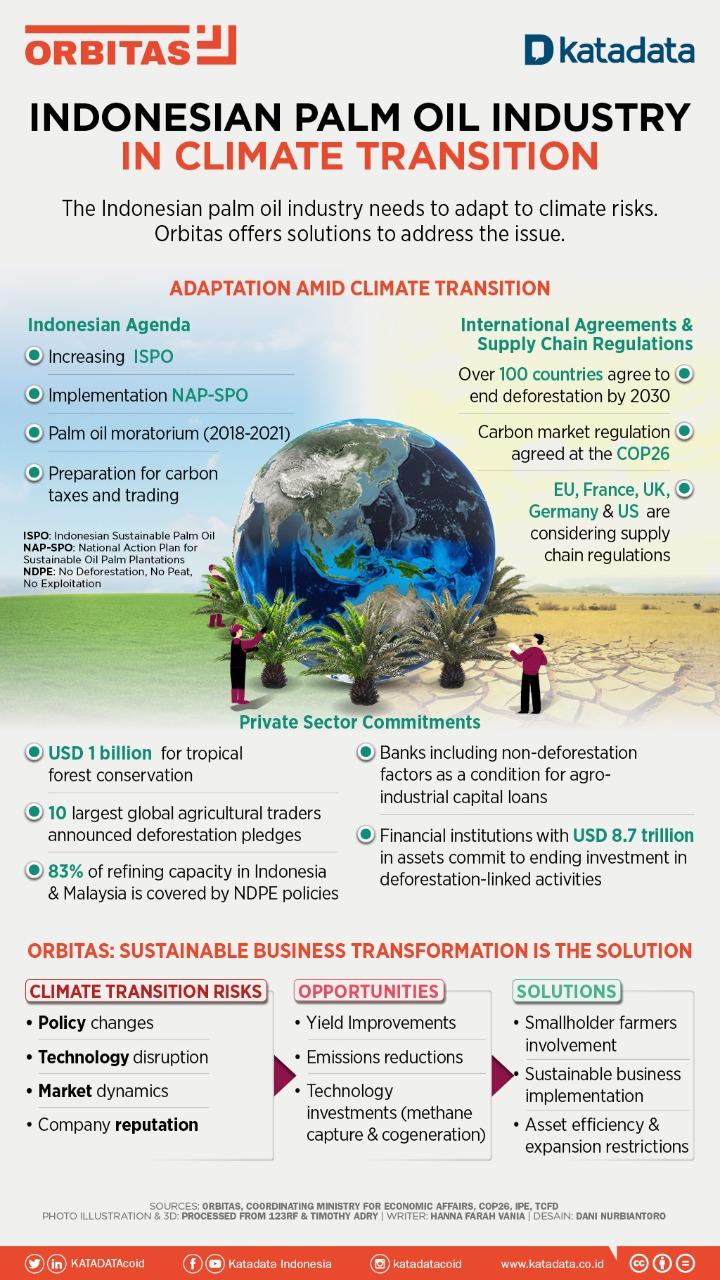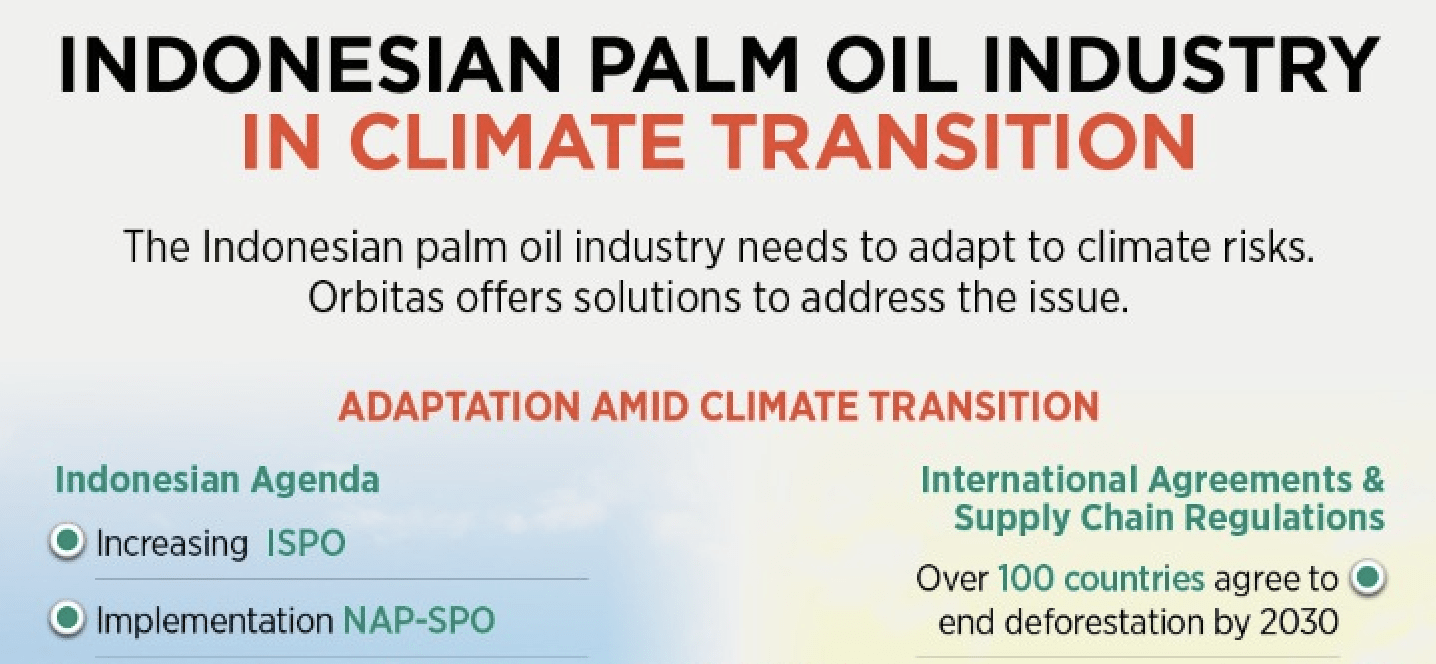Author: Kyle Saukas
Sustainable business transformation in the palm oil industry is the solution to climate transition risks.

Climate transition risks pose significant challenges for the palm oil industry in Indonesia, although physical climate change risks like natural disasters, water availability, and changing weather patterns are better understood by the industry. Climate transition risks include the actions of governments to achieve international climate commitments; market access limitations that result from changing consumer preferences and stricter sourcing and financing policies; disruptive technical innovations in agroforestry; and finally, reputational risk associated with company involvement in deforestation. Orbitas Finance modeling on climate transition risks in the Indonesian palm oil industry predicts that land acquisition costs will increase by 52 percent, emissions costs will comprise a greater percentage of operating costs, and 76 percent of unplanted concessions could become stranded as a result of direct land use restrictions and pricing systems.
As the world takes increasingly bold action to tackle climate change, the risks posed by climate transitions are no longer theoretical for the Indonesian palm oil sector. Over 100 countries committed to end deforestation at COP26. The private sector is increasingly requiring No Peat, No Deforestation, No Exploitation (NDPE) policies in supply chains and as a prerequisite for lending. Indonesia has implemented the National Action Plan for Sustainable Palm Oil (NAP-SPO) and is expected to take further action on carbon pricing. It is becoming increasingly clear that in a world of climate transitions, companies that do not respond will be left behind.
Alternatively, companies can lean into climate transition opportunities through productivity improvements, emissions reductions, and investments in technology like biogas capture and cogeneration. According to Orbitas research, if the Indonesian palm oil industry responds optimally to climate transitions, it will see a USD 9 billion increase in combined enterprise value. In this way, sustainable business transformations are an essential component of both preventing the worst impacts of climate change and of protecting long-term revenue streams in palm oil companies.
DOWNLOAD INFOGRAPHIC